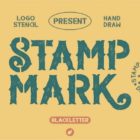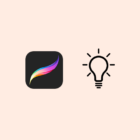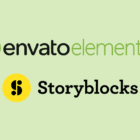The Gutenberg team is currently immersed in bringing full-site editing capabilities to the block editor as part of Phase 2 in the project’s longterm roadmap. Meanwhile, Gutenberg engineer Riad Benguella has been experimenting with ideas for the collaboration features coming in Phase 3, which aims to deliver a more intuitive way to co-author content.
Today, Benguella unveiled a collaborative writing prototype called AsBlocks that is built using the Gutenberg editor. It is an example of the editor working outside of WordPress. AsBlocks provides an end-to-end encrypted writing environment that can be shared to other users with a link, while the server itself cannot decrypt the content.
In the video demo below you can see a user adds some content, clicks the share button, and is presented with an option to share a link for a live collaboration session (Write) or a link for read-only access (Read). The session is private and only users with the link can access the post.
None of the content is automatically saved. If collaborators leave the page, all the content is gone but users have the option to save an encrypted version to the server by clicking the Save button.
AsBlocks supports ~30 blocks and the UI is very similar to working inside the WordPress editor. It even includes block settings in the sidebar. AsBlocks also has an optional dark mode. Check out the live demo at asblocks.com.

Benguella said he was inspired by excalidraw, a collaborative drawing and diagram app. In the future, he plans to add the following features:
- Comments.
- Live Chat.
- Selection/Caret indicators.
- Document outline, counts.
- Local save button.
- Local storage persistence.
WordPress’ implementation of collaborating writing may not look exactly like this but AsBlocks is an interesting exploration of what is possible with the block editor. Although Benguella described it as his “new side project” in his Twitter announcement, his post clarified that AsBlocks is a prototype that was created as an exploration for future WordPress core capabilities.
“AsBlocks is an important step in our journey to understand live-collaboration and bring it to Core,” Benguella said. “A WordPress plugin based on AsBlocks’ technology is also on the radar.”
It will be a long road before something like AsBlocks could rival Google Docs and its vast array of features. But for something like collaborating on a page or blog post, AsBlocks provides a delightfully simple implementation that could give WordPress a major springboard into Gutenberg phase 3. The project is GPL-licensed and available on Github, if you want to dig into the code or contribute.





